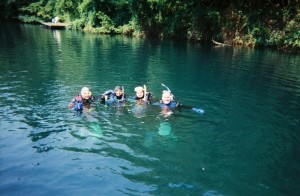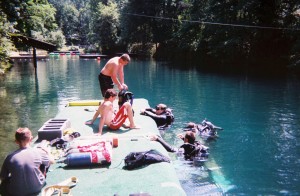The February, 2016 issue of Boys’ Life contains an article titled “Scuba on Ice”, directed to a winter scuba activity on a frozen lake in Minnesota. An excellent adventure to be sure.

Opportunities for Scouts to learn, and participate in, scuba activities are many, including several programs at Florida Sea Base. Scuba is a challenging, fun activity that can provide years of enjoyment. And, for Scouts, there is always the goal of earning Scuba Diving merit badge.
The inherent risks associated with scuba activities are serious, and can be challenging depending on the environment, but in a properly conducted program such inherent risks should be able to be adequately managed with the cooperation of the participants.
But, as with all recreation activities whose inherent risks are serious and potentially challenging, lack of qualified supervision and discipline (the Sweet 16 of BSA Safety) may lead to an unexpected tragedy. The margin for error due to a mistake in judgment can be small indeed during a scuba program. Remember, we are dealing with youth during a Scout scuba activity.

Steve Lewis, author of the well-received book “Staying Alive – risk management techniques for advanced scuba diving“, 2014, makes the point that “most scuba diving accidents are not accidents at all”, but result from a failure to follow established risk management techniques. Hence, the reason for his authoring of the book. (Indeed, the same could be said about many accidents which occur during any outdoor activity, not just scuba diving).
This book is highly recommended for those units who incorporate scuba diving activities into their outdoor program. Reminders from an experienced professional regarding the need for, and how to practice, risk management techniques during scuba activities can benefit all, particularly Scouting programs involving youth.
